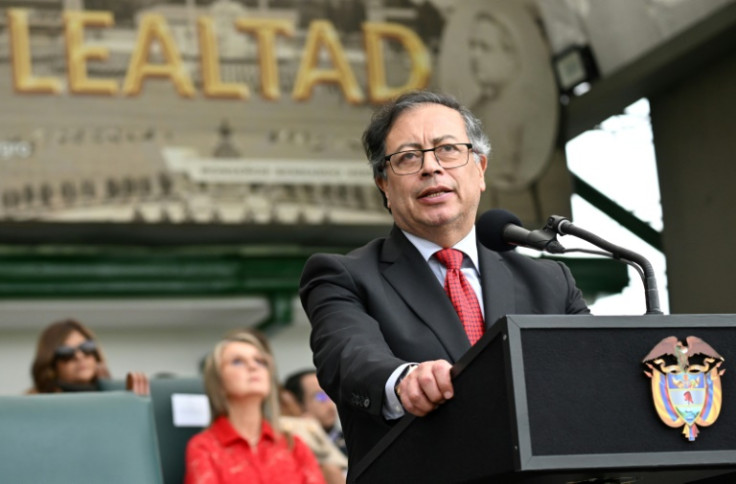Colombia Says Armed Groups Not Respecting Ceasefire

The Colombian government on Tuesday accused two key armed groups of failing to comply with an ongoing ceasefire in place during peace talks aimed at ending decades of conflict in the country.
President Gustavo Petro's government has been in negotiations with the National Liberation Army (ELN) as well as the EMC, a group of guerrillas that broke off from the FARC after that group signed a peace pact in 2016.
However, the ELN on Friday declared an "indefinite armed strike" in the western region of Choco, restricting the movement of locals along key rivers.
The rebel group justified the action saying it was to protect the local population from paramilitary fighters roaming the area.
The move came just days after the ELN -- which last year kidnapped the father of Colombian footballer Luis Diaz -- agreed to extend a ceasefire with the government by six months.
"Obviously, the ceasefire is not working there," Interior Minister Luis Fernando Velasco told journalists Tuesday, saying "the army must act."
A representative of the Catholic Church, which has played a key part in mediating the peace talks, described the ELN's actions as a "mockery."
"We no longer know what to do in our role," said Mario de Jesus Alvarez, the bishop of Istmina, in Choco, in a radio interview in which he spoke of a climate of "great anxiety and great anguish" in the region.
Colombia's Peace Commissioner Otty Patino on Monday called into question the guerrillas' commitment to dialogue.
He said the EMC had attacked a school vehicle in Cauca in the southwest of the country, injuring two, while the group was behind extortions and massive displacements in other areas.
"A ceasefire is not permission to commit crimes, even less so against the population," he said.
The ELN has around 5,800 fighters and the Central General Staff (EMC) about 3,500, according to military intelligence figures.
Since his election in 2022, the leftist president Petro has sought to put an end to six decades of conflict between the country's security forces, guerrillas, right-wing paramilitaries and drug gangs.
However, his "total peace" process has faced multiple setbacks with the guerrillas, who are linked to drug trafficking and are accused by rights groups of taking advantage of various ceasefires to expand their influence, seize more territory and recruit new members.
Colombian media on Tuesday cited an intelligence report saying that the ELN was taking advantage of the peace talks to "gain time" and "strengthen its military capabilities."
At the same time, its "involvement in illegal activities such as drug trafficking and extortion increased in order to obtain funds to finance its operations."
The report said that the negotiation process had "reduced military pressure on its structures, which allowed them to reorganize and consolidate."
© Copyright AFP {{Year}}. All rights reserved.





















